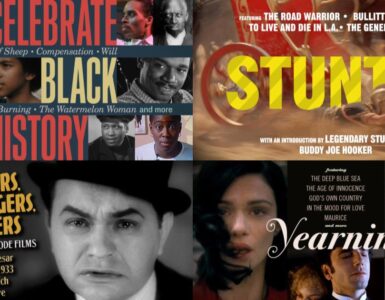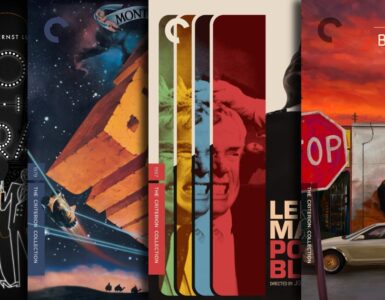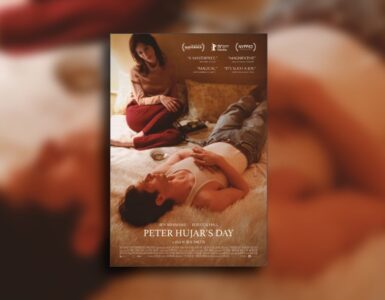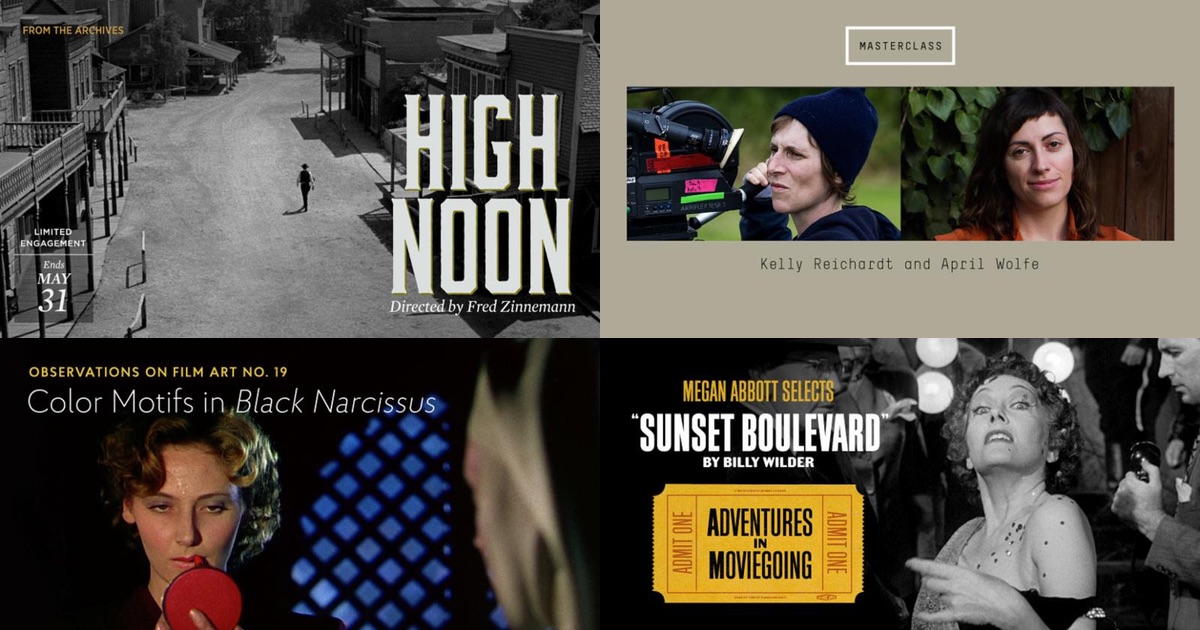
Each month, the fine folks at FilmStruck and the Criterion Collection spend countless hours crafting their channels to highlight the many different types of films that they have in their streaming library. This May will feature an exciting assortment of films, as noted below.
To sign up for a free two-week trial here.
Tuesday, May 1

From the Archives: High Noon*
Gary Cooper stars in this real-time western as a sheriff looking forward to retirement and marriage whose plans are upended by the news that a gang of outlaws are on their way to gun him down. Though his Quaker bride (Grace Kelly, in her first major film role) wants him to flee and the townspeople refuse to help him, his sense of duty compels him to stand his ground until the fateful hour. Shot through with political resonance-the screenplay was written by Carl Foreman, a victim of the Hollywood blacklist-High Noon reimagined the most quintessentially American genre as a moral testing ground for the individual conscience. This edition features an early Criterion commentary, never before released on Blu-ray or DVD, by professor Howard Suber.
*Premiering on the Channel this month.
Tuesday, May 1
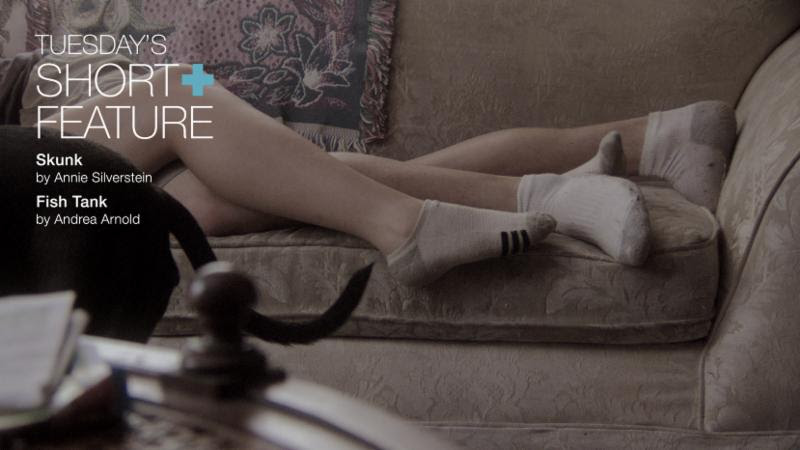
Tuesday’s Short + Feature: Skunk* and Fish Tank
Annie Silverstein and Andrea Arnold both earned attention at the Cannes Film Festival for these coming-of-age stories about adolescent girls growing up in tough economic circumstances and learning to confront the sexual power wielded by men. Silverstein’s short film, winner of the Cinéfondation Award in 2014, is an intimate portrait of Leila, a fourteen-year-old girl who is intimidated by the advances of a dogfighting boy. Fish Tank, winner of the Cannes Jury Prize in 2009, follows the fifteen-year-old Mia (Katie Jarvis), an aspiring dancer whose burgeoning sexuality commands the attention of her mother’s new boyfriend (Michael Fassbender).
*Premiering on the Channel this month.
Tuesday, May 1

Adventures in Moviegoing with Barry Jenkins: Uptight*
As a guest curator on the Channel-exclusive series Adventures in Moviegoing, Barry Jenkins highlights one of the most radical American films of the 1960s, a ripped-from-the-headlines remake of John Ford’s The Informer set in Cleveland in the immediate aftermath of Martin Luther King Jr.’s assassination. When Tank Williams (Julian Mayfield), an unemployed black steelworker, backs out of a plan to steal guns and turns his militant friend into the police, he finds himself running for his life, pursued by a group of vengeful revolutionaries. The first film that director Jules Dassin made in the U.S. after two decades of blacklisting and exile, this uncompromising vision was also a labor of love for cowriter, costar, and coproducer Ruby Dee, whom Jenkins discusses as the film’s auteur in a new introduction.
*Premiering on the Channel this month.
Wednesday, May 2

Slacker: Edition #247
This breakthrough film from director Richard Linklater presents a day in the life of a loose-knit Austin, Texas, subculture populated by eccentric and overeducated young people. Shooting on 16 mm for a mere $3,000, writer-producer-director Linklater and his crew of friends threw out any idea of a traditional plot, choosing instead to create a tapestry of over a hundred characters, each as compelling as the last. Slacker is a prescient look at an emerging generation of aggressive nonparticipants, and one of the key films of the American independent film movement of the 1990s. SUPPLEMENTAL FEATURES: three audio commentaries, featuring Linklater and members of the cast and crew; It’s Impossible to Learn to Plow by Reading Books (1988), Linklater’s first full-length feature, with commentary by the director; Woodshock, a 1985 16 mm short by Linklater and director of photography Lee Daniel; casting tapes featuring select “auditions” from the more-than–100-member cast; home movies; and more.
Friday, May 4
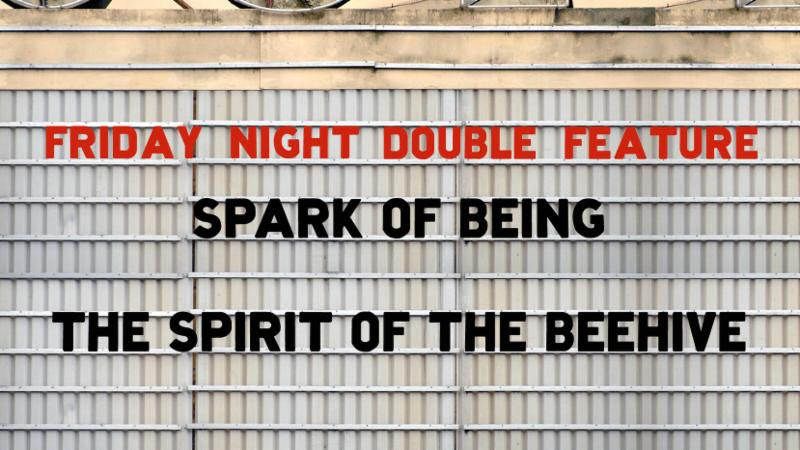
Friday Night Double Feature: Spark of Being and The Spirit of the Beehive
It’s alive! In this week’s double feature, two filmmakers keenly attuned to the eerie textures of the past reanimate the tale of Frankenstein. Bill Morrison’s Spark of Being is an oblique retelling of Mary Shelley’s Gothic novel using material found in film archives. Scored by trumpeter Dave Douglas, Morrison’s film mimics the monster’s resurrection by stitching together and breathing life into decaying fragments. Then, Víctor Erice’s haunting period piece centers on a six-year-old bewitched by James Whale’s Frankenstein (1931), who searches for signs of the monster’s existence in the silence that blankets the Spanish village where she lives.
Tuesday, May 8
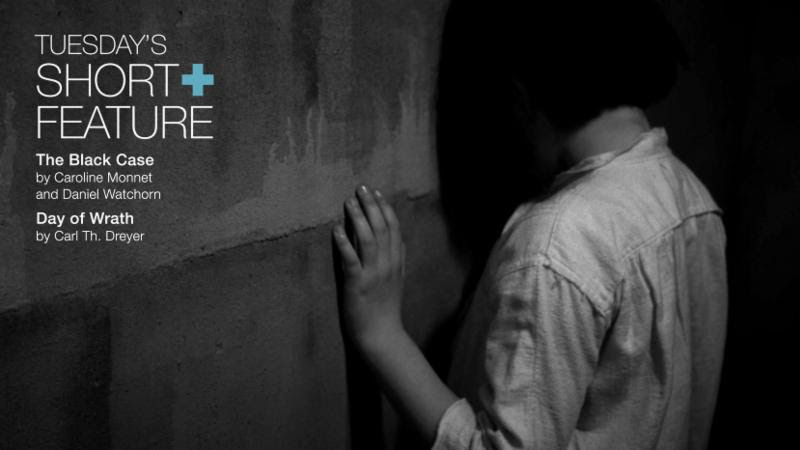
Tuesday’s Short + Feature: The Black Case* and Day of Wrath
These harrowing black-and-white thrillers explore the strictest codes of Christianity and the brutality of intolerance. Caroline Monnet and Daniel Watchorn’s hallucinatory short takes place in the infirmary of a school for Native American children in Canada, where a young girl watches in terror as a menacing doctor and nurse attend to her and her infant cousin. Made under the Nazi occupation of Denmark, Carl Theodor Dreyer’s Day of Wrath takes place in a seventeenth-century village consumed by fear of witchcraft, where a young woman falls in love with her stepson, setting off a chain of disastrous consequences.
*Premiering on the Channel this month.
Wednesday, May 9

The Color of Pomegranates: Edition #918
A breathtaking fusion of poetry, ethnography, and cinema, Sergei Parajanov’s masterwork overflows with unforgettable images and sounds. In a series of tableaux that blend the tactile with the abstract, The Color of Pomegranates revives the splendors of Armenian culture through the story of the eighteenth-century troubadour Sayat-Nova, charting his intellectual, artistic, and spiritual growth through iconographic compositions rather than traditional narrative. The film’s tapestry of folklore and metaphor departed from the realism that dominated the Soviet cinema of its era, leading authorities to block its distribution, with rare underground screenings presenting it in a restructured form. This edition features the cut closest to Parajanov’s original vision, in a restoration that brings new life to one of cinema’s most enigmatic meditations on art and beauty. SUPPLEMENTAL FEATURES: an audio commentary featuring critic, filmmaker, and festival programmer Tony Rayns; a rarely seen 1969 documentary by Mikhail Vartanov featuring footage of director Sergei Parajanov at work; a video essay on the film’s symbols and references, featuring scholar James Steffen; and more.
Thursday, May 10
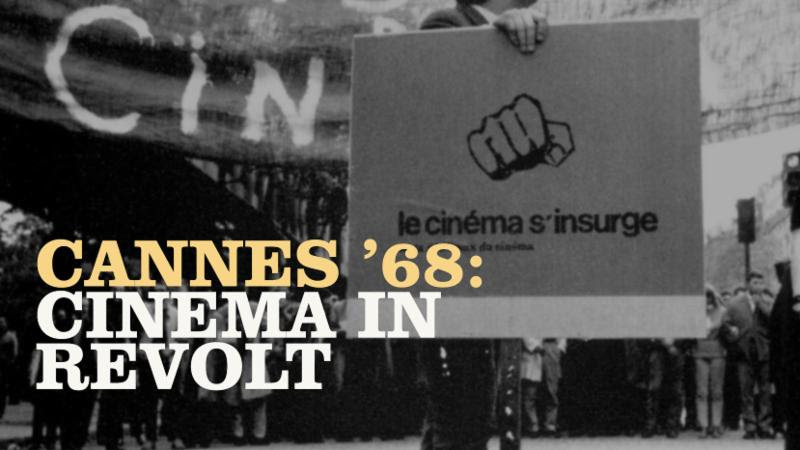
Cannes ’68: Cinema in Revolt
As the film world heads to the Croisette, we’re commemorating the fiftieth anniversary of the Cannes that fell apart. The 1968 edition of the festival opened, amid widespread civil unrest, with a restoration of Victor Fleming’s Gone with the Wind, but it wasn’t long before filmmakers began pulling their movies from the schedule, in solidarity with the workers and students protesting across France. To mark the fiftieth anniversary of this abruptly canceled Cannes, we’ve gathered select titles from the year’s official lineup, alongside a scene-setting introduction by film historian Dudley Andrew. Decide for yourself which film should have won the never-presented Palme d’Or: Richard Lester’s Petulia, Alain Resnais’s Je t’aime, je t’aime, Carlos Saura’s Peppermint Frappé, Jan Němec’s A Report on the Party and the Guests, Kaneto Shindo’s Kuroneko, Miklós Jancsó’s The Red and the White, Valerio Zurlini’s Black Jesus, or the lately departed Milos Forman’s The Firemen’s Ball. Also included in our series is Federico Fellini’s Toby Dammit, which was set to screen that year out of competition.
*Premiering on the Channel this month
Friday, May 11
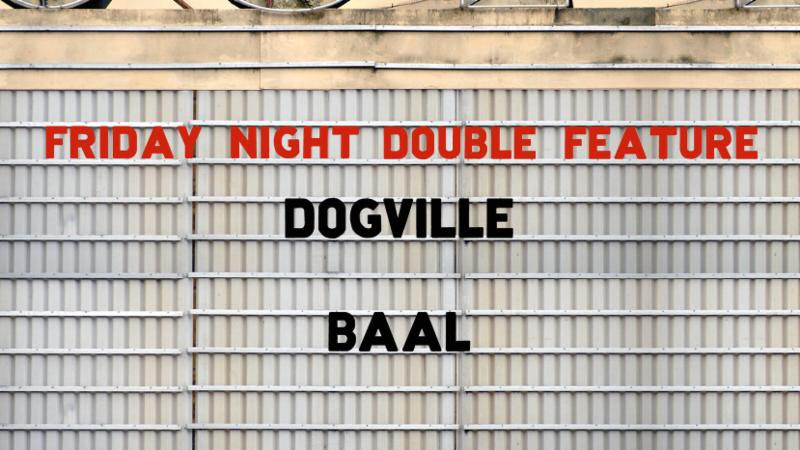
Friday Night Double Feature: Dogville and Baal*
The iconoclastic playwright Bertolt Brecht finds cinematic expression in these two auteurist works. Danish enfant terrible Lars von Trier shot the Nicole Kidman-starring Dogville (2003), a tale of hypocrisy in small-town USA inspired by Brecht and Kurt Weill’s The Threepenny Opera, on a soundstage with a bare minimum of props and sets, achieving through his stripped-down staging the kind of “alienation effect” Brecht originated onstage. With Baal (1970), an unruly adaptation of Brecht’s first full-length work, Volker Schlöndorff cast fellow New German Cinema icon Rainer Werner Fassbinder in the role of a womanizing, schnapps-soaked poet who rebels against the society that has cast him out.
Monday, May 14
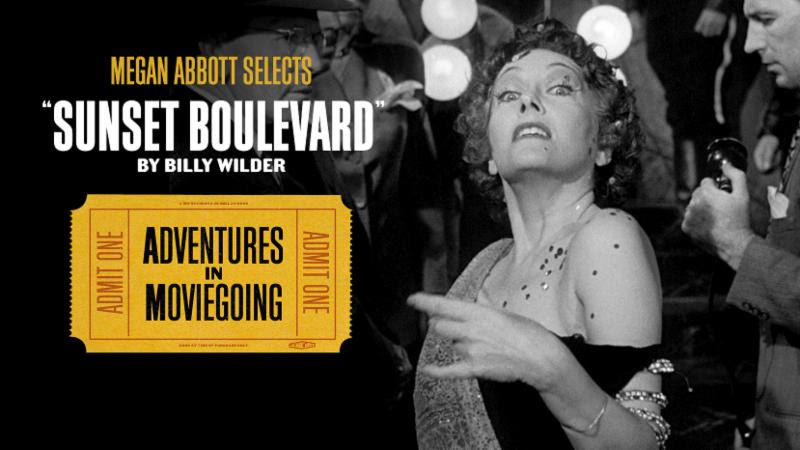
Adventures in Moviegoing with Megan Abbott: Sunset Boulevard
Acclaimed novelist Megan Abbott, who made her screenwriting debut last year on David Simon’s hit HBO drama The Deuce, recently sat down with film critic Michael Sragow to recount some of her most formative moviegoing experiences. Among the films she fell in love with during family trips to the revival house in her hometown of Grosse Pointe, Michigan, was Billy Wilder’s Sunset Boulevard. This month, we’re presenting the immortal classic on the Channel alongside Abbott’s personal introduction to the film, in which she positions Gloria Swanson’s fading silent star as the moral center of the movie, and talks about how William Holden’s unsuccessful screenwriter became a model for the antihero of one of her own best crime novels, 2007’s The Song Is You.
Tuesday, May 15

Tuesday’s Short + Feature: The Burden* and 42nd Street
Hard work takes center stage in these two beguiling musicals. In Niki Lindroth von Bahr’s award-winning short The Burden (2017), a deadpan stop-motion fantasy, song and dance provide a much-needed release for the animals working soul-crushing jobs at a roadside mall. Lloyd Bacon’s 1933 backstage classic 42nd Street, featuring dazzling choreography by Busby Berkeley (whose influence can be seen in The Burden), revolves around the frenzied production of a fictional Broadway show that gives its beleaguered director (Warner Baxter) a final shot at success and catapults an understudy (Ruby Keeler) to stardom.
*Premiering on the Channel this month
Wednesday, May 16

Branded to Kill: Edition #38
When Japanese New Wave bad boy Seijun Suzuki delivered this brutal, hilarious, and visually inspired masterpiece to the executives at his studio, he was promptly fired. Branded to Kill tells the ecstatically bent story of a yakuza assassin with a fetish for sniffing steamed rice (the chipmunk-cheeked superstar Joe Shishido) who botches a job and ends up a target himself. This is Suzuki at his most extreme-the flabbergasting pinnacle of his sixties pop-art aesthetic. SUPPLEMENTAL FEATURES: interviews with director Seijun Suzuki, assistant director Masami Kuzuu, and actor Joe Shishido.
Friday, May 18

Friday Night Double Feature: A Face in the Crowd and Network
These two mass-media satires, both made decades ago, are eerily tuned in to the current political moment. Elia Kazan’s A Face in the Crowd (1957) charts the unlikely rise of Larry “Lonesome” Rhodes (Andy Griffith), a drifter who gets “discovered” in the local drunk tank and eventually winds up a TV star and political kingmaker. In Sidney Lumet’s equally biting Network (1976)-for which screenwriter Paddy Chayefsky and actors Faye Dunaway, Peter Finch, and Beatrice Straight all won Oscars-a flailing news network gets a ratings boost when a veteran anchorman (Finch) threatens to kill himself on air, and the head of programming (Dunaway) decides to steer the station in a more sensational direction.
Tuesday, May 22

Tuesday’s Short + Feature: Limbo* and Lord of the Flies
Youth runs wild in these island-bound parables. In award-winning Greek filmmaker Konstantina Kotzamani’s arresting 2016 short Limbo, a group of children discover a whale carcass that has been washed ashore. With the 1963 Lord of the Flies, experimental theater director Peter Brook takes an innovative, documentary-like approach to William Golding’s tale of lost boys stranded on an uninhabited island.
*Premiering on the Channel this month
Wednesday, May 23
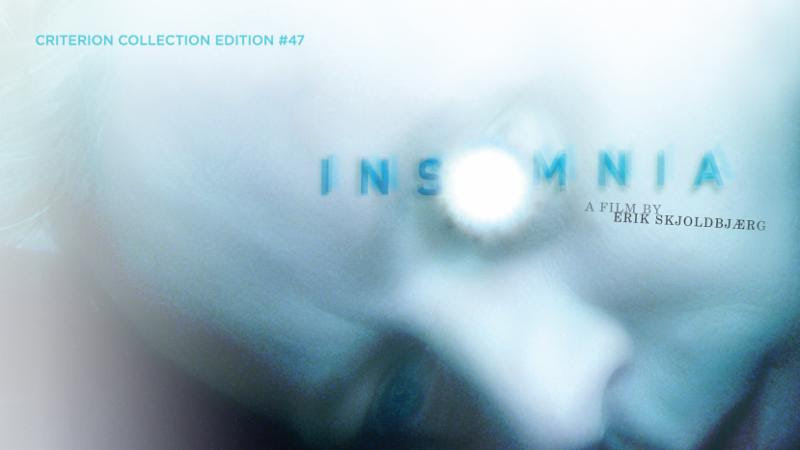
Insomnia: Edition #47
In this elegantly unsettling murder mystery, Stellan Skarsgård plays an enigmatic Swedish detective with a checkered past who arrives in a small town in northern Norway to investigate the death of a teenage girl. As he digs deeper into the facts surrounding the heinous killing, his own demons and the tyrannical midnight sun begin to take a toll. The success of Erik Skjoldbjærg’s chilling procedural anticipated the international hunger for Scandinavian noirs and serial- killer fictions, and the film features one of Skarsgård’s greatest performances. SUPPLEMENTAL FEATURES: a conversation between director Erik Skjoldbjærg and actor Stellan Skarsgård, and two short films by Skjoldbjærg: Near Winter (1993) and Close to Home (1994).
Thursday, May 24
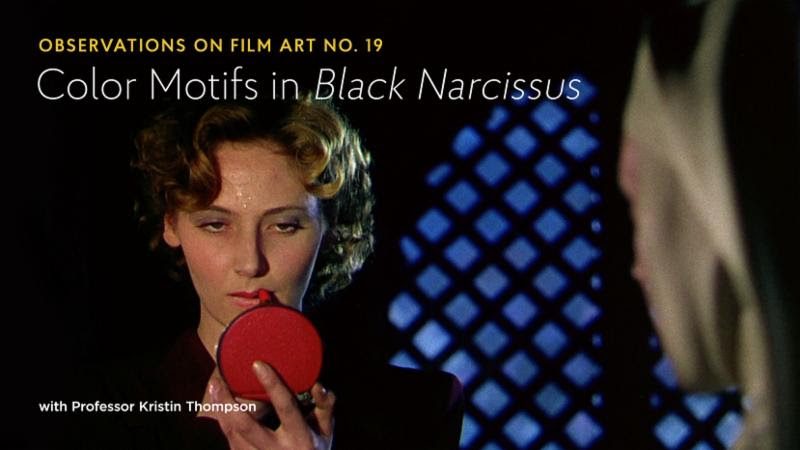
Observations on Film Art No. 19: Color Motifs in Black Narcissus
In one of the defining partnerships in British cinema, Michael Powell and Emeric Pressburger made a string of masterpieces that took Technicolor to sublime heights. For this month’s episode of Observations on Film Art, a Channel-exclusive series that delivers ten minutes of film school a month, scholar Kristin Thompson explores the lush palette of their 1947 Black Narcissus. Set in a convent run by Anglican nuns in the Himalayas, this captivating drama depicts the isolation and extreme weather of the landscape, which combines with interpersonal tensions to drive these pious heroines mad. Thompson’s episode focuses on how the Oscar-winning work of production designer Alfred Junge and cinematographer Jack Cardiff creates an otherworldly atmosphere that affects the psychological arc of the characters.
Friday, May 25

Friday Night Double Feature: Sisters and What Ever Happened to Baby Jane?
Sibling bonds turn sour in this diabolical double bill. De Palma’s first foray into horror voyeurism, Sisters follows the twisted relationship that forms between a fashion model, her former conjoined twin, and a hotshot reporter who suspects the latter of murder. Taking its cues from Hitchcock, De Palma’s scary and stylish paean to female destructiveness features a spine-tingling score from the great Bernard Herrmann. Robert Aldrich’s 1962 What Ever Happened to Baby Jane? is a dark and devilishly comedic showcase for two of Hollywood’s most notorious enemies, Joan Crawford and Bette Davis, who play a sadistic, washed-up actor and her embittered, wheelchair-bound sister.
Monday, May 28

Kelly Reichardt Masterclass
In her exquisitely subtle character studies, American filmmaker Kelly Reichardt is attuned to both the grandeur of sprawling landscapes and the rich complexities of human relationships. For this episode of Masterclass, we go to the American Cinematheque in Los Angeles for the tenth-anniversary celebration of cutting-edge indie distributor Oscilloscope Laboratories, where the writer-director sat down for a conversation with film critic April Wolfe. Watch the talk alongside some time with Reichardt’s celebrated films: River of Grass, Old Joy, Wendy and Lucy, and Meek’s Cutoff*.
*Premiering on the Channel this month
Tuesday, May 29

Tuesday’s Short + Feature: The Alphabet and Altered States
Two of cinema’s great provocateurs push at the limits of consciousness in these mind-benders. Combining animation and live action, David Lynch’s nightmarish 1968 experimental short dives into a sick woman’s nightmare involving an endless recitation of the alphabet. An early precursor to the auteur’s idiosyncratic style, the film won him a grant from the American Film Institute, which allowed him to begin fully pursuing his career as a director. Hailed by Roger Ebert as “a clever and brilliant machine for making us feel awe, fear, and humor,” the 1980 film Altered States showcases Ken Russell’s flair for excess, which he brings to the story of an abnormal psychologist (William Hurt, in his debut role) experimenting with sensory deprivation and hallucinatory drugs.
Wednesday, May 30

Badlands: Edition #651
Badlands announced the arrival of a major talent: Terrence Malick. His impressionistic take on the notorious Charles Starkweather killing spree of the late 1950s uses a serial-killer narrative as a springboard for an oblique teenage romance, lovingly and idiosyncratically enacted by Martin Sheen and Sissy Spacek. The film introduced many of the elements that would earn Malick his passionate following: the enigmatic approach to narrative and character, the unusual use of voice-over, the juxtaposition of human violence with natural beauty, the poetic investigation of American dreams and nightmares. This debut has spawned countless imitations, but none have equaled its strange sublimity. SUPPLEMENTAL FEATURES: a 2012 documentary featuring actors Martin Sheen and Sissy Spacek and art director Jack Fisk; interviews from 2012 with associate editor Billy Weber and executive producer Edward Pressman; and more
Complete list of films premiering on the Criterion Channel this month:
May 1
High Noon, Fred Zinnemann, 1952
Uptight, Jules Dassin, 1968
Skunk, Annie Silverstein, 2014
May 8
The Black Case, Caroline Monnet and Daniel Watchorn, 2014
May 10
Petulia, Richard Lester, 1968
Je t’aime, je t’aime, Alain Resnais, 1968
The Red and the White, Miklós Jancsó, 1967
Black Jesus, Valerio Zurlini, 1968
Toby Dammit, Federico Fellini, 1968
May 11
Baal, Volker Schlöndorff, 1970
May 15
The Burden, Niki Lindroth von Bahr, 2017
May 22
Limbo, Konstantina Kotzamani, 2016
May 28
River of Grass, Kelly Reichardt, 1994
Old Joy, Kelly Reichardt, 2006
Wendy and Lucy, Kelly Reichardt, 2008
Meek’s Cutoff, Kelly Reichardt, 2010


